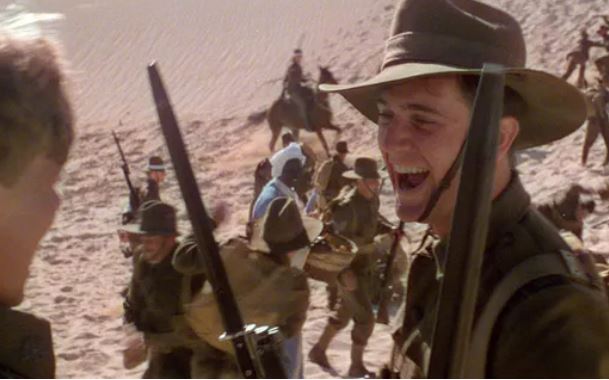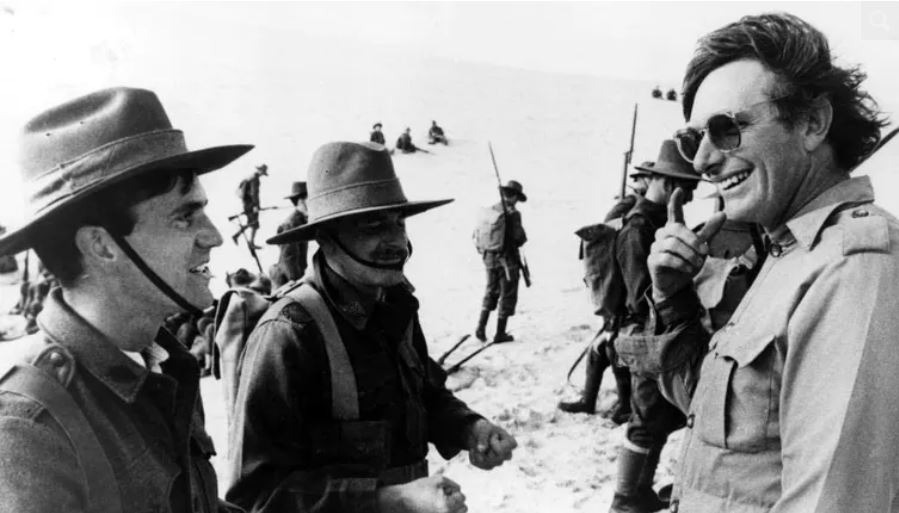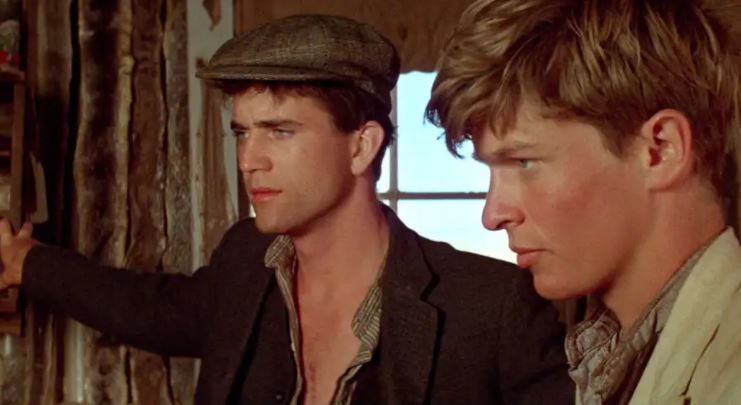
The ANZAC experiences in the First World War arguably cemented post-colonial Australian ideals of mateship, bravery and love for country.
In Peter Weir’s landmark film Gallipoli, the character attributes and events are still very much part of the Australian consciousness.

These attributes are genuinely — one might even say lovingly — treated in mythic fashion, writes Dr Nick Prescott, Flinders University College of Humanities, Arts and Social Sciences academic, in The Conversation.
Director Weir has said the inspiration for the story came from a trip to Anzac Cove in 1976. Flying back to Australia from London, he took a detour to Turkey.
At the Gallipoli Peninsula, walking in still-extant trenches, Weir found not just shrapnel and bullet-casings, but also the personal effects of young soldiers. These tiny mementos poking out of the earth were probably the final objects held by some young men before they died.
The experience was profound. From this emotional rite of passage came the seeds of a work Weir has described as his “graduation film”.
The sensitivity and respect with which he approached the material in Gallipoli was striking. Playwright David Williamson was brought on to craft a screenplay from a story Weir had penned himself.
For the two central characters, Weir chose Mark Lee as Archie, and Mel Gibson — fresh from the success of Mad Max — as Frank.
Originally envisioned as a detailed, epic narrative of war, Gallipoli was gradually narrowed in scope to focus on the experiences of the two friends, competitive runners who enlist in the army for slightly different reasons.
Archie is the idealist — joining to do his duty. Frank is more cautious and self-centred, eventually talked into enlisting by his mates.
Archie and Frank bond quickly and suddenly find themselves transported to Egypt, on their way to Turkey and their respective appointments with destiny.
From the opening frames, where blood-red credits play out on a black background as Tomaso Albinoni’s Adagio in G Minor plays, we immediately see a sober and attentive approach to the storytelling.
The opening scene finds Archie training to run on the farm. Courtesy of cinematographer Russell Boyd, the outback location is all burnished oranges, browns and reds.
There is an immaculate attentiveness to costume, set dressing and editing.

Both Mark Lee and elder statesman Bill Kerr (as his Uncle Jack) deliver beautiful — and beautifully directed — performances, perfectly establishing the central themes of love, family and belonging. It is clear from the opening minutes this is a story being told with a deft hand.
Gallipoli retains its focus on the emotional and psychological effects of war throughout the film; from the families left behind to the deep friendships torn asunder by death and violence, every character and situation in the film helps construct Weir’s portrait of innocence lost. (Gallipoli has far more in common with Terrence Malick’s The Thin Red Line than with Steven Spielberg’s Saving Private Ryan.)
Watching Gallipoli 40 years after its release is a fascinating experience. The film has lost none of its power, and the elegance of its construction has become even more pronounced after multiple viewings.

After Gallipoli, which won eight Australian Film Institute (AFI) awards and was nominated for Best Foreign Film at the 1982 Golden Globe Awards, Weir would leave behind much of the overt quirk and mystery of his early work, and move to political dramas, thrillers and historical pieces — The Year of Living Dangerously (1982), Witness (1985), Dead Poets Society (1989), The Truman Show (1998), Master and Commander: The Far Side of the World (2003).
While retaining a love of beautifully-rendered atmosphere, Weir would go on to demonstrate a maturity of storytelling that has made him one of our greatest filmmakers. Perhaps Gallipoli represents its director’s coming-of-age as powerfully as it does its characters’.
Read the original full article ‘Peter Weir’s Gallipoli 40 years on: deftly directed and still devastating‘.
This article is republished from The Conversation under a Creative Commons licence.

